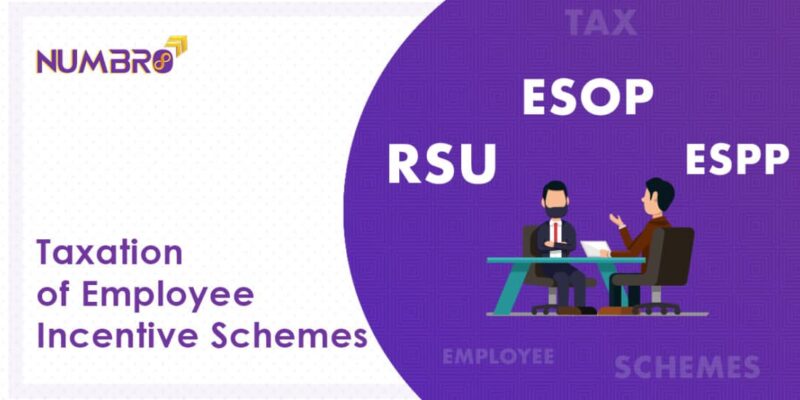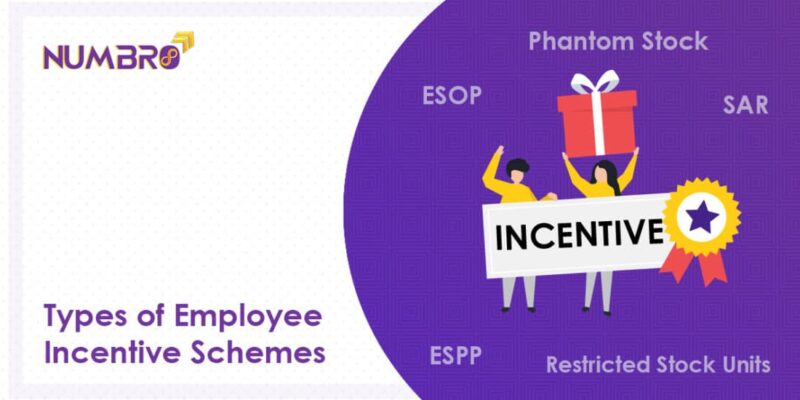Taxation of Employee Incentive Schemes
Taxation of Employee Incentive Schemes: As discussed in our earlier article, that is types of employee incentive schemes, we have seen different types of incentive schemes available to the employees. As we have learnt about the different options provided by the employer to employees based on their eligibility, let us now understand about the taxation of employee incentive schemes so that employees can also work hassle free, leaving away the worry about taxes on incentives provided to them.
Some of the employers include these employee incentive schemes as a part of employee’s CTC. Most of the employees find it difficult to understand these benefits and get confused to arrive at their taxability.
Let us understand the taxation of employee incentive schemes in the hands of employees so that, the employees may avoid any levy of interest and penalties upon receipt of the incentives granted to them.
Generally, in equity-settled employee incentive schemes, there are two-staged tax implications involved. First, when the options are exercised and secondly, at the time of selling such shares to third parties. Cash-settled employee incentive schemes are usually treated as cash bonuses issued.
The tax implications pertaining to Employee Stock Options (ESOP), Employee Share Purchase Plan (ESPP) and Restricted Stock Units (RSU) are the same, as they all deal with issue of shares to the employee at discounted prices. The below explanation provides details regarding taxability of the above mentioned three incentive schemes in the hands of employees:

Taxation of Employee Incentive Schemes like ESOP, ESPP and RSU:
- Employers grant some options to the employees with underlying conditions to be satisfied by the employee upon which such options vest to the employee.
- There is a certain vesting period determined by the employer, thereafter when the options vest, employee can exercise the ESOPs, ESPPs or RSUs granted.
- There is no tax implication when the options are granted and vested. No treatment is required in the above two cases.
- When the employees exercise the options, the employer allots such shares to the employees at a later date. Such date is known as date of allotment or transfer.
- There are two stages of taxation when the employees exercise ESOPs, ESPPs, or RSUs granted to them.
- In the first stage, when the employees exercise options vested to them, they are treated as a perquisite in the hands of employees. The amount of perquisite is determined as below:
Taxable Perquisite Amount = Fair Market Value (FMV) (-) Exercise Price (EP)
Where, Fair Market Value is determined as per Income Tax Rules and,
Exercise price is the amount setup by the employer when options are granted.
- Second stage would be when the shares allotted to the employee are sold in the open market. Hence, such income attracts capital gains tax. It could be short term or long-term capital gains based on the period of holding. Period of holding is determined from the date of allotment upto sale of shares by the employees. Computation of capital gain can be determined as below:
Capital Gain = Sale Consideration (SP) (-) Cost of Acquisition (COA)
Where, Cost of Acquisition would be Fair Market Value as determined above.
- Tax treatment in case of ESOPs issued by Indian companies of its foreign holding companies to its Indian employees, is similar to issue of unlisted shares by Indian company to its employees. The same would be taxable in India too. The shares are treated as short-term if held for less than 12 months else, such shares are treated as long-term. Since the shares are issued by foreign companies, such transaction may be taxable in such country too. To avoid double taxation in such case one has to look into DTA Agreement with such country. For example, Amazon India issuing ESOPs of Amazon US to is employees in India.

* vulputate eu scelerisque sit amet just

* vulputate eu scelerisque sit amet just
Taxation of SARs & Phantom Stock:
- Similar to ESOPs, ESPPs or RSUs, there are no tax implications when these rights are granted and vested to the employees.
- In cash-settled SARs and phantom stock, when the price appreciation is settled in cash, it is treated as a perquisite in the hands of employees.
- The perquisite amount in cash settled SARs and phantom stock would directly be the price appreciation amount that is paid to the employees.
- In case of equity-settled SARs too the price appreciation amount is treated as perquisite since in case of SARs at the time of exercise of options, no consideration is to be paid by the employees.
- For this purpose, price appreciation is calculated as follows:
Price Appreciation = FMV on the Date of Grant (-) FMV on the Date of Exercise of Right
- Further, in equity-settled SARs, the employees have the option to retain the stock attained or sell them off. In case the employees sell his rights, such income is subjected to capital gain tax.
- Employee has to pay capital gain tax if his sale consideration is more than cost of acquisition. Here, cost of acquisition would be the fair market value on the date of exercise of rights.
The amount determined as perquisite on exercise of options is included as part of employee’s income from salary and employer is intended to withhold tax on such salary including the perquisite amount. The amount of perquisite and the tax withheld is shown in the employee’s Form 16.
Moreover, in case of capital gains earned by the employee, he is liable to pay advance tax. Such amount should be included in the installment amount pertaining to the quarter in which sale is done.
The above-mentioned employee incentive schemes can be issued by listed or unlisted companies. In case of long-term loss incurred from sale of ESOPs issued by listed company there is no treatment as long-term capital gains are exempt. But in case of unlisted long-term or listed and unlisted short-term capital loss, such loss can be carried forward by the employee in his return of income.
So, find out your taxation of employee incentive schemes based on above stated facts, before you decide to exercise incentive options granted by your employer.
In case if you have missed our previous article on types of employee incentive schemes, we are providing the link for your reference below:




